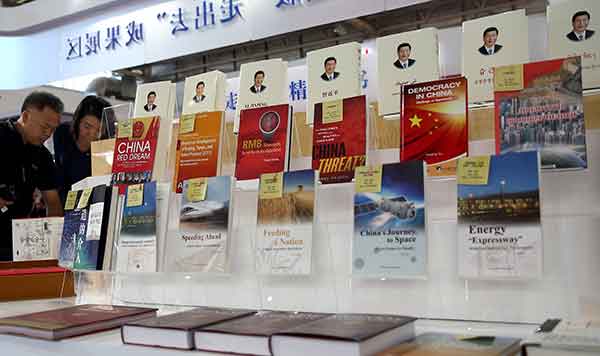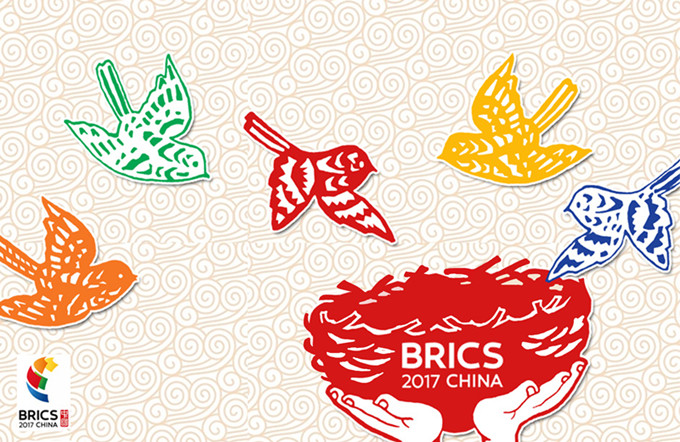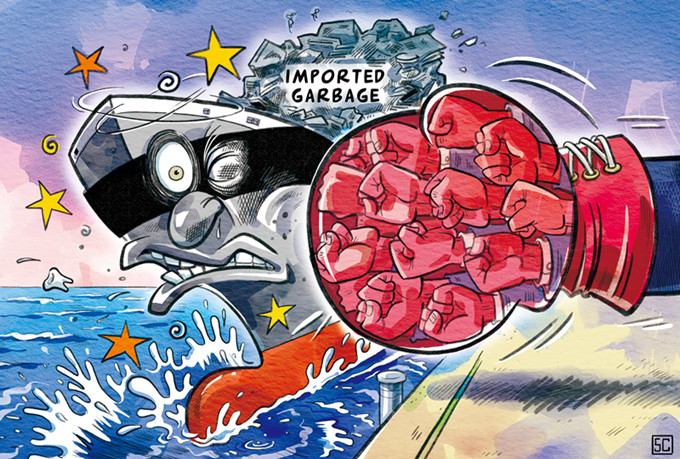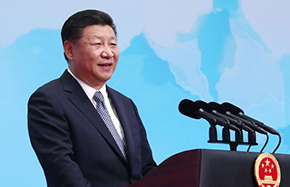Nigeria and development lessons of Xi's Book – Up and Out of Poverty
 |
|
The 24th Beijing International Book Fair, which opened on Wednesday, will present over 300,000 books from 89 countries during its five days.Zou Hong / China Daily |
President Xi Jinping's book "Up and Out of Poverty" contains interesting chapters and has a lot of development lessons which Nigeria can learn in transforming its economy. China and Nigeria are united in their determination to eliminate poverty. China success story in poverty reduction is substantially a good development lesson that Nigeria is keen to learn from. Xi's book is a significant window where Nigerian government can look into China's development model and learn from it. The book has gained huge popularity because this is the first time the Chinese government has made the philosophy, ideas, and programs of a serving leader accessible to the world in multiple languages. A vast amount of international attention is being paid to China at the moment based on the huge expectations from the Chinese government. The international community is eager to know what to expect of China under the current leadership.
The book records the thinking and actions of Xi in the area of poverty alleviation. The book showcases Xi's working period in Ningde in Fujian province with his contributions, new strategic plans, and how he implemented them, leading the people into a new phase of development. The thoughts, ideas, and policies laid out in the book in terms of poverty alleviation require a change of attitude and the support of knowledge sharing (education). He addresses the poverty mentality among disadvantaged communities. Development work must begin by addressing the mindset in the communities and the leader's mindset as well. All players must believe that development is possible. Unless the mind is transformed development will not happen. Impoverished regions cannot have impoverished ideas…finding contentment in poverty, wanting government aid, depending on financial grants, requiring poverty allowances, blaming everyone else and not wanting knowledge sharing cannot provide the solution to eliminating poverty. Xi stated that "a weak hatching bird can be the first to fly, and the poorest can be the first to become rich, but we must first have the concept in mind." Xi Jinping book is a good tutorial for development and poverty reduction, especially for developing nations such as Nigeria.
Xi's said that "developing the economy is our political priority", "equal importance to growing the economy and keeping the government clean" were not the only key to Ningde's success in poverty reduction and development, but were also an epitome of the whole nation's successful experience in reform and opening-up. At the moment, these thoughts continue to guide China in meeting its poverty alleviation targets and are highly relevant for other developing nations like Nigeria in their poverty alleviation efforts. The book showed that making headway is not possible without a sound and complete governing mechanism. China development model offered an example to Nigeria if Nigeria intends to set out long-term development objectives including promoting sustainable growth and welfare improvements for the Nigerian people as well as the medium-term strategy for operationalizing Vision 20: 2020.
China has successfully lifted 800 million people out of poverty in the past 35 years and contributed 70 percent to the UN Millennium Development Goal on poverty reduction, creating a miracle in the world development history. In 1949 when the People's Republic of China was founded, China's GDP was only $18.9 billion, while per capita GDP was $35. China was labeled as one of world's poorest countries at that time. In 1978 when China embarked on its reform and opening-up, its GDP and per capita GDP reached $216.8 billion and $227 respectively, while in 2016 jumped over $10 trillion and $8,000 respectively. Additionally, China's average life expectancy increased from 35 years in 1949 to 76.34 years in 2015. The Chinese government is determined to eradicate poverty regardless of the challenges ahead by setting a new ambitious target to lift at least 10 million people out of poverty every year from 2016 and lift a total of 43.35 million rural residents out of poverty by 2020. However, while combating poverty at home, China also actively assists other developing nations, such as African nations, to address their poverty problems.
In his 10-count deliverables at the Forum on China-Africa Cooperation (FOCAC) Summit held in Johannesburg in South Africa in December 2015, Xi reaffirmed his country's support to poverty alleviation in Africa under the plan for 2016-2019. Xi believes that to eradicate poverty and boost development in eastern Fujian, he devised innovative ideas, mechanism and methods which he thinks can also assist African nations, especially Nigeria lift its people out of poverty, and he has shared those in the book. The book shows his concern and cares for the people in Ningde in Fujian province, and his confidence and determination to fight poverty. The book offered thoughts, ways and a vision to help country and other developing countries such as Nigeria in fighting poverty. The idea and the summarization of his experience offered a theoretical and political foundation for poverty alleviation in the country, where millions of people have been lifted from misery, a feat as well as the miracle in human history.
There is an old Nigerian proverb which states that "a man cannot sit down alone to plan for prosperity". Growing economic cooperation with China provides Nigeria with a reason to be optimistic about their plans. Xi advocated realizing common development and prosperity and building a community of shared future for mankind, injecting fresh impetus to and opened up a new vista for China-Nigeria cooperation should be a top priority. Poverty remains a crucial issue in Nigeria. According to National Bureau of Statistics of Nigeria, no fewer than 115 million Nigerians live below poverty level, while more than 40 million Chinese need to be lifted out of poverty to fulfill China's Promise 2020 of eliminating poverty. The common daunting task will hold China and Nigeria together and open new prospects for the increasingly strengthened China-Nigeria strategic partnership. China will step up the sharing of governance experience with Nigeria without any reservation by maintaining a regular high-level exchange of visits and expanding links between governments, political parties and states or provinces, with a view to jointly exploring a pathway out of poverty and toward prosperity as needed by Nigeria. There is no one-size-fits-all method or panacea to erase poverty. Facing poverty and its collateral challenges, Nigeria cannot mechanically copy but flexibly learn from China's successful experience, however, Nigeria must not aim to be China but surpass China.
Development is the "master key" to solving all problems. China will further synergize development strategies sincerely and deepen practical cooperation with Nigeria enormously. Ultimately, whether Nigeria's Economic Recovery and Growth Plan (2017-2020) or China's 13th Five-Year Plan (2016-2020) and supply-side structural reform, they are all designed to satisfy the peoples' wish for a better life. In this vein, China-Nigeria practical collaboration in such areas as agriculture, manufacturing, infrastructure, minerals and human resources and knowledge sharing has served and will always serve the primary task of development of Nigeria. Like the instances of CGCOC or China Civil Engineering Construction Corporation (CCECC), Wempco, and Lee Group, they have rooted in Nigeria for many decades and created tens of thousands of local employments, playing their due role in Nigeria's efforts of poverty alleviation.
In order to realize the world where no one is left behind successful policies and know-how from developed nations and poverty reduction policies that were able to get 800 million Chinese out of poverty should be shared and made available to developing nations, especially African nations trying to lift their population out of poverty, that is the key to achieving the new continental and globally sustainable development goals: African Agenda 2063 and the 2030 agenda for Sustainable Development Goals (SDGs). As Xi said: "We should not leave any poverty-stricken families or persons behind on the way out of poverty." Let's work together to strengthen coordination and cooperation to fight against poverty, strive for common prosperity, and jointly embrace a brighter future. For that reasons, as Nigeria pursues its ambitious plan to become one of the 20 largest economies in the world by 2020, China looks forward to being a steady partner to accelerate efforts to end poverty and boost shared prosperity in Africa's largest, most populous country. This, in turn, will also benefit Nigeria's neighbors across West Africa.
Ehizuelen Michael Mitchel Omoruyi is a researcher at the Institute of African Studies, Zhejiang Normal University.
- China launches English, French editions of Xi's book on poverty relief
- German firm acts over China Daily's poverty-relief reports
- Xi calls for unholding revolutionary spirit in poverty relief
- Hands-on efforts target poverty relief
- Big data helps poverty-relief in Chinese villages
- Down-to-earth efforts called key to reaching poverty relief goal

























